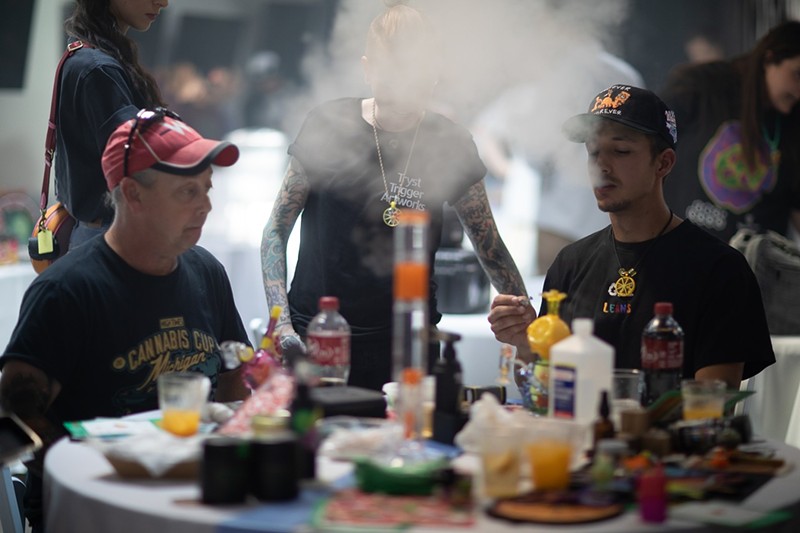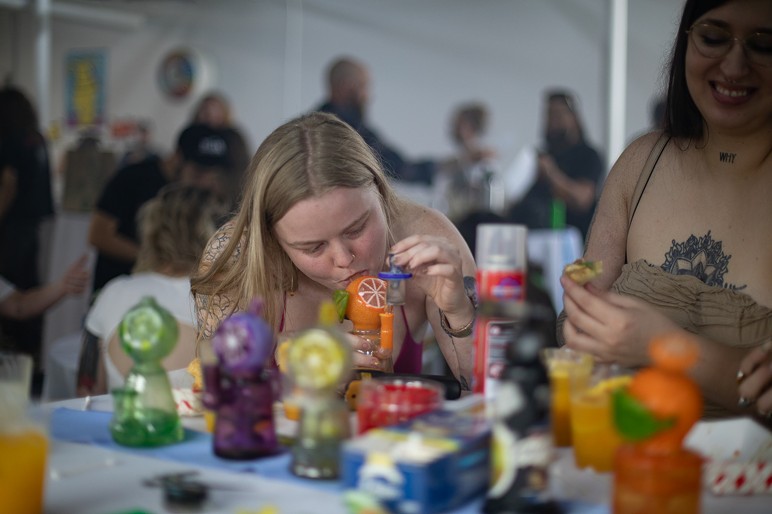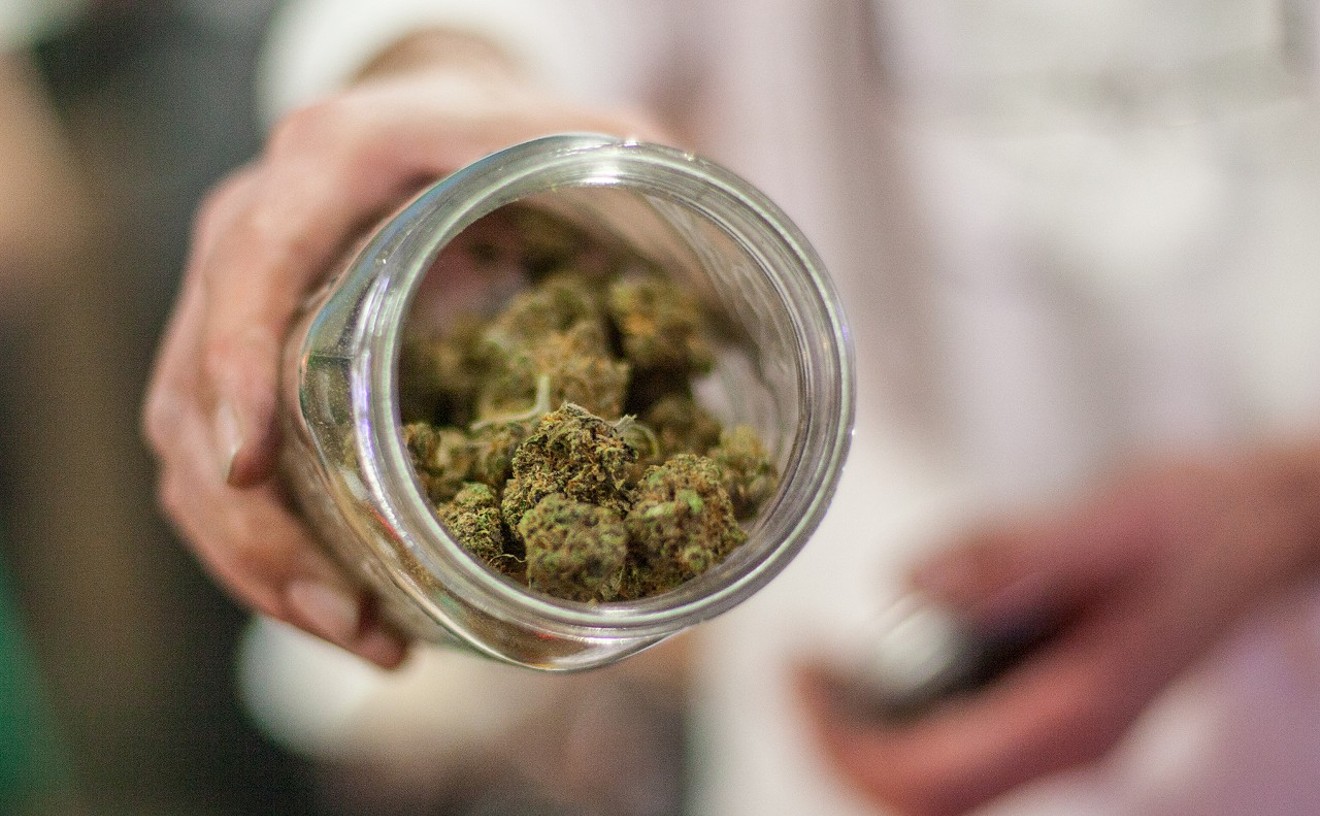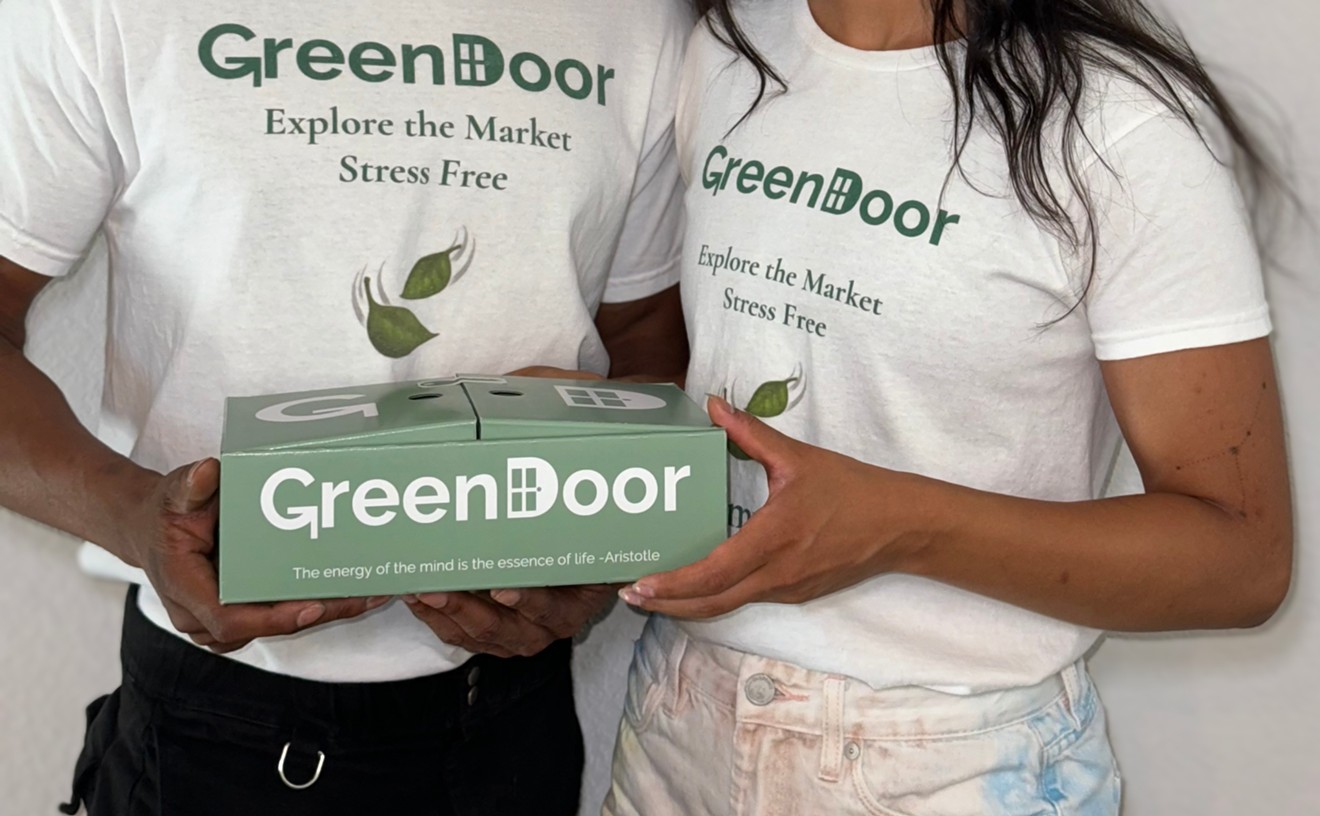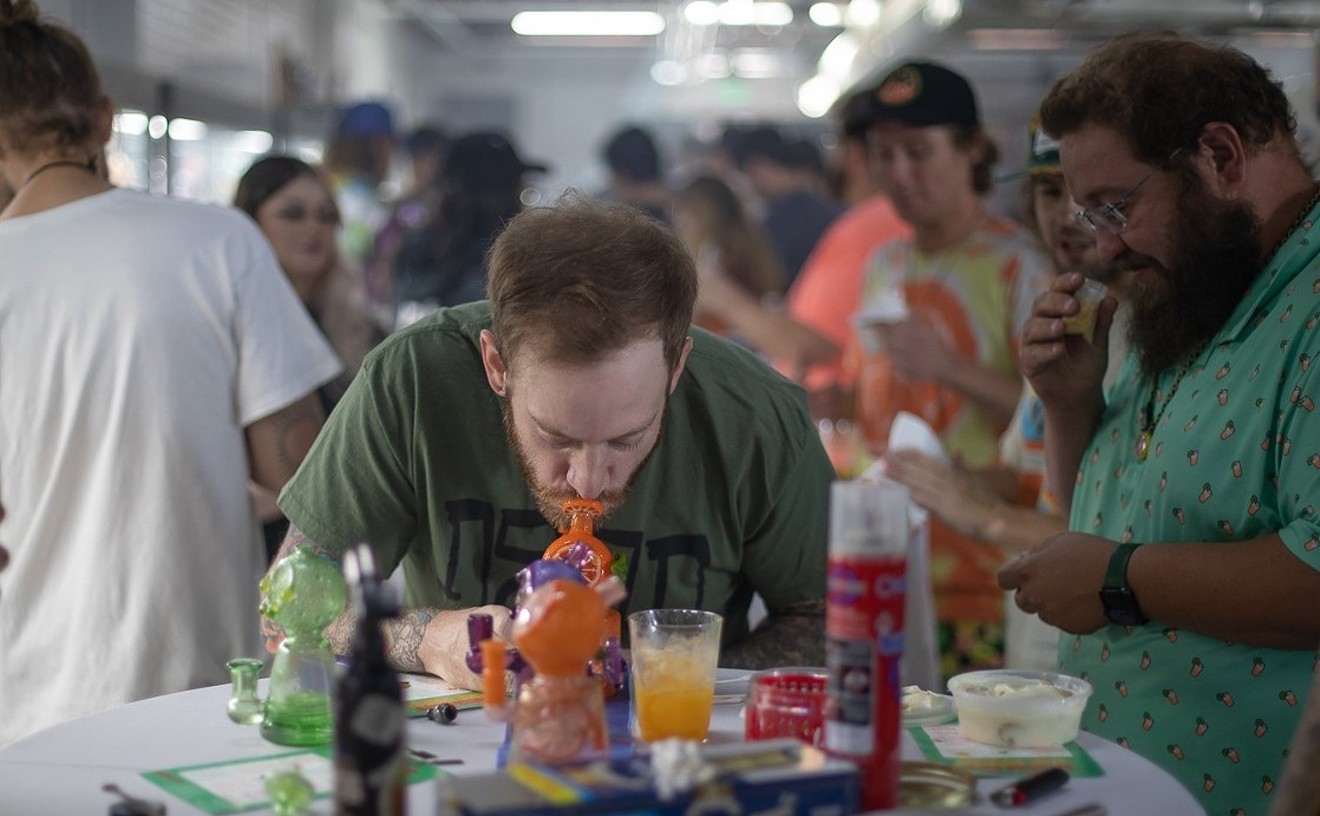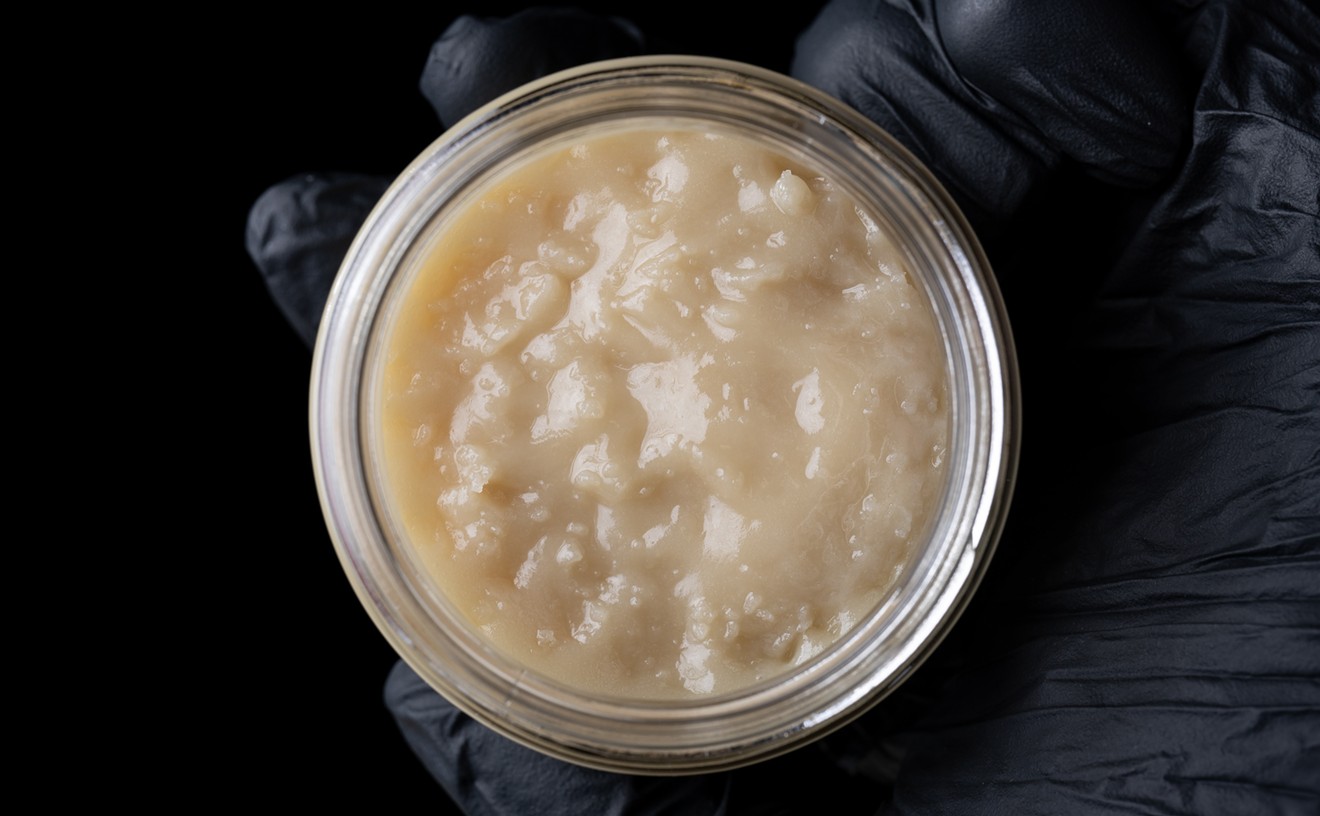But Hadley has also pursued a side hustle for the past eight years, prestigious food critics be dammed. He loves cannabis, and isn't afraid to tell anyone — including his parents.
"They just came in last week and wanted me to separate the two things, because my parents think that a lot of these people with James Beard and those sort of things don't respect cannabis," he explains. "But it has helped me create a name in this new industry, and there is something truly good behind it."
Hadley grew up in New Jersey, learning traditional Indian cooking techniques from his grandmother. He's a graduate of the Culinary Institute of America, with kitchen stops in Aspen, Thailand and Denver, but his experience in the cannabis trade is extensive, as well. In 2015, he began working at a cannabis extraction company, then went on to consult for edibles brands that needed a chef's input. After winning the Food Network's Chopped competition in 2017, traveling around the world and re-launching Samosa Shop, Hadley is ready to pull his two passions together on a larger scale.
"There are alcohol brands sponsoring chefs, but there hasn't been that look in the cannabis market yet because we just haven't seen anything like it — or the look behind what we have right now is negative or distasteful," he argues. "There is a way to do both, but we as a society just haven't been able to accept a format of live eating and drinking, hospitality rules or [cannabis] smoking sections."
Despite being the first state to legalize the plant for recreational use in late 2012, Colorado still hasn't effectively established a licensed hospitality sector for cannabis. Social consumption licenses for businesses interested in allowing cannabis use weren't created at the state level until 2019, and there are fewer than ten mobile lounges and other establishments now operating with hospitality licenses across the state.

There's no mention or inclusion of weed at chef Dave Hadley's food stands, but he enjoys working at events that pair his cooking with cannabis.
Mark Antonation
Under the 2019 cannabis hospitality law, local governments must approve cannabis hospitality before such businesses can operate within their jurisdictions, but the law only allows for venues and mobile lounges, and no special events. To date, Denver and Adams County are the only local governments to have opted in and permitted businesses to open, while city councils in Aurora and Boulder rejected the idea after much consideration. An old program in Denver previously allowed venues to apply for an event permit for cannabis use, but only a handful of events took place before the program ended in 2021.
"Through history, we've not been able to get behind the idea of smoking cannabis in a place with food pairings in a beautiful but regular restaurant. We just haven't gotten there yet, but why not?" Hadley asks. "We can take precautions, just like with alcohol, whether it's cut-offs or ensuring safe transportation."
According to Denver's licensing department, any cannabis-friendly event selling tickets or conducting commercial activity must take place at a licensed venue or incorporate one of Denver's three recently licensed mobile lounges. Since 2022, Denver has approved a hotel and three cannabis lounges for pot hospitality licenses, but all four establishment owners are still dealing with renovation, ventilation and community-planning requirements before they can qualify for official licenses. The Coffee Joint, Denver's lone operating pot lounge, was open under the city's former ordinance and only allows vaporizing and edibles.
A handful of business owners and event promoters have argued in the past that their cannabis events are private, not public, as evidenced by pre-approved guest lists and ID checks at the door to ensure that no one under 21 enters. This argument rarely dissuades the city from enforcement when it deems such action appropriate, however, and citations have been handed out to venue owners in the past.
Hadley is working with cannabis event organizer Stephen Woolf to convince local and state governments to create cannabis event permits that would allow pop-ups and parties to incorporate cannabis use under similar rules at licensed hospitality venues, which include age and advertisement restrictions. Woolf, whose Groovy Gravy events combine local chefs, artists and cannabis brands for pairing dinners, believes events like his help promote small businesses and educate newer cannabis users.
"It's critical for collaboration. The best chefs and people in cannabis don't want to be confined to one or two lounges. That doesn't mean we don't want to work with the lounges or don't want to host events there. We just want more of a free market," Woolf says. "And if we're holding a private event that isn't open to anyone on the street, then it should be regulated like one."
The Denver Department of Excise & Licenses recently sent out letters to various venue owners and event organizers around town that contained warnings and questions about social cannabis use. Included was a cannabis club approved for a hospitality license, which was issued a criminal citation in August for hosting a pot-friendly event without a license. That club, Tetra Lounge, was approved for social consumption in March 2022 but must still meet local building and planning requirements before actually receiving a license, according to Excise & Licenses.
Woolf says he wasn't affected much by the recent crackdown in Denver, but now his "wings feel clipped" in the city.
"Colorado is becoming a fly-over state for cannabis, when it used to be the main state for hospitality. And then you see Oktoberfest and all of these other things going on, and you can't help but notice," he says.
Hadley and Woolf have recently began attending rulemaking hearings held by state Marijuana Enforcement Division, and are mulling over potential lobbying or activism efforts. They don't have specifics in mind yet, but hope to create an avenue for cannabis-friendly food events, festivals or even movie screenings, which Excise & Licenses has already tried to quash this year.
The MED is still holding rulemaking hearings through October and is accepting feedback for suggested hospitality rule changes, but such a big change to cannabis regulations typically takes months, if not years, of political lobbying and lawmaker awareness. Another large challenge is a state law banning liquor sales at any business with an active pot hospitality license.
Other chefs, cannabis brands and trade groups are behind the idea, according to the two men, who say they are preparing for the long haul.
"If it's going to get us to the point of where we can legally do it and we're feeling good about how this supports the community, then paying whatever licensing fee to ensure an event can be done correctly is what should be done. That's the idea here," Hadley concludes. "We're still trying to figure how much money and effort it takes and who's gonna be up there to fight this battle with us, because it takes a team. I didn't know that going into this, but it takes money and it takes effort."

